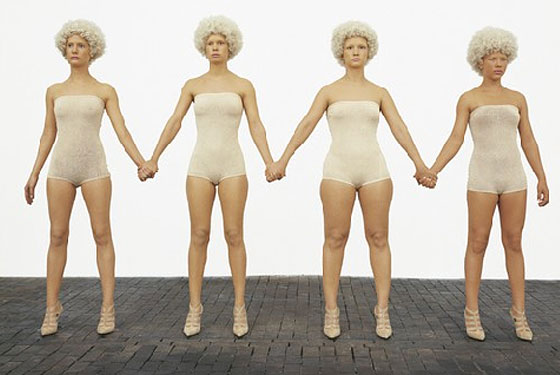
Jeffrey Deitch is the Jeff Koons of art dealers. Not because he’s the biggest, best, or the richest of his kind. But because in some ways he’s the weirdest (which is saying a lot when you’re talking about the wonderful, wicked, lovable, and annoying creatures known as art dealers). For the twenty years I’ve known him professionally, Deitch has always worn the same happy expression. He’s donned the same snappy suits; is perpetually cheerful; is always ready with a sound bite; has few discouraging words to say about anyone; has his own unique point of view; and always finds a way to bring the conversation back to himself. I’ve called his gallery late at night on weekends in the middle of summer looking to leave a message. These are times when all other spaces are shut down. On more than one occasion, he’s actually picked up the phone with a chipper, “Deitch Projects.” After a pause, I’d say, “Jeffrey? Is that you?” And without missing a beat he’d say, “Hi, Jerry. Yes, yes, I’m working. What can I do for you?” And then he’d start talking about a show that he’s seen that he’s been thinking about.
I remember walking down to Canal and West Broadway on September 11, 2001, to where the police had put up barricades. I saw Deitch there looking at the hole in the sky and the smoke with tears in his eyes. It was the only time I’ve ever seen him break that strange, shiny façade. Whether you like the art that this one-of-a-kind party girl and mover-shaker showed in his galleries, now that he’s closing them down to become the new director of the Museum of Contemporary Art in Los Angeles, L.A.’s gain is New York’s loss.
Related: How Jeffrey Deitch’s MOCA Appointment Changes the Art World [NYM]
Many say an art dealer running a museum is a “conflict of interest.” But maybe the art world has lived an artificial or unintentional lie all of these years when it comes to conflicts of interest. Of course art world ethics are important. But museums are no purer than any other institution or business. Academics aren’t necessarily more high-minded than gallerists. (I give you Thomas Krens.) Deitch is one of very few outsiders who will be able to come in and immediately deal with — and hopefully fend off — rogue billionaire and MOCA-board chairman Eli Broad. Deitch also knows that curator Paul Schimmel, who has organized some of the greatest large-scale historical surveys of the last twenty years, has two or three great shows left in him. Deitch will be able to get Schimmel to make those shows. His acumen and ambition will provide a tremendous challenge to all other American museum directors, as well. Whatever happens, New York is going to miss the squirrelly circus master and semi-visionary known as Jeffrey Deitch.
Related: How Jeffrey Deitch’s MOCA Appointment Changes the Art World [NYM]




